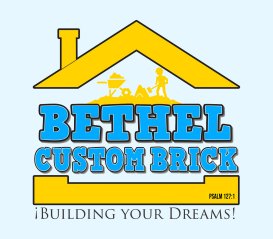A properly sealed chimney is an essential component of your home’s safety and functionality. Chimneys are exposed to the elements year-round, and without proper sealing, they can become vulnerable to water damage, structural issues, and potential fire hazards. Taking the time to ensure your chimney is adequately sealed can protect your home and family from a variety of risks. Here’s why chimney sealing matters and how it safeguards your home.
The Role of Chimney Sealing
Chimney sealing involves applying a protective barrier to the chimney’s exterior surfaces to prevent water infiltration while allowing the masonry to breathe. This process helps protect the structure from weather-related damage and ensures it remains safe and functional.
Why a Properly Sealed Chimney Is Crucial
1. Prevents Water Damage
- The Risk: Water is one of the most significant threats to masonry chimneys. Over time, rain and snow can seep into the bricks and mortar, causing them to crack and deteriorate.
- The Solution: Sealing prevents water from penetrating the chimney, protecting it from freeze-thaw cycles that can lead to spalling bricks and mortar erosion.
2. Protects Against Structural Issues
- The Risk: Moisture infiltration weakens the structural integrity of the chimney, increasing the risk of collapse or costly repairs.
- The Solution: A sealed chimney maintains its strength and stability, ensuring it can safely support the fireplace or heating system.
3. Reduces Risk of Chimney Fires
- The Risk: Cracks in the chimney allow heat and embers to escape into surrounding structures, increasing the likelihood of a fire.
- The Solution: Sealing helps close off small cracks and gaps, reducing the chance of heat transfer that could ignite combustible materials nearby.
4. Prevents Mold and Mildew Growth
- The Risk: Water inside the chimney creates a damp environment that encourages the growth of mold and mildew, which can pose health risks.
- The Solution: Sealing keeps moisture out, preventing the conditions that lead to fungal growth.
5. Improves Energy Efficiency
- The Risk: An unsealed chimney may allow drafts and air leaks, reducing your home’s energy efficiency and increasing heating costs.
- The Solution: Proper sealing minimizes air leaks, helping your home retain heat during colder months.
Signs Your Chimney Needs Sealing
- 1. Efflorescence: White, powdery residue on the exterior bricks indicates water infiltration.
- 2. Cracks or Gaps: Visible cracks in the mortar joints or bricks suggest the chimney is vulnerable to moisture.
- 3. Leaking Water: Moisture inside the fireplace or visible water stains near the chimney signal that sealing is needed.
- 4. Spalling Bricks: Flaking or crumbling bricks are a clear sign of water damage.
- 5. Musty Odors: A damp or musty smell coming from the chimney often indicates water infiltration.
How Chimney Sealing Works
- 1. Inspection: A professional assesses the chimney to identify existing damage and determine the best sealing method.
- 2. Cleaning: The chimney is cleaned to remove dirt, debris, and creosote, ensuring the sealant adheres properly.
- 3. Repairs: Cracks, gaps, or spalling bricks are repaired before applying the sealant.
- 4. Application: A waterproof, breathable sealant is applied to the exterior masonry, creating a protective barrier against water infiltration.
- 5. Final Check: The chimney is inspected to ensure the sealing is complete and effective.
Benefits of Professional Chimney Sealing
While DIY chimney sealing kits are available, hiring a professional ensures the job is done correctly and effectively. Here’s why:
- 1. Proper Materials: Professionals use high-quality, breathable sealants designed specifically for masonry chimneys.
- 2. Thorough Inspection: A professional can identify and repair hidden damage that might compromise the effectiveness of the sealing.
- 3. Long-Lasting Results: Expert application ensures the sealant lasts for years, providing reliable protection.
Tips for Maintaining a Sealed Chimney
To maximize the lifespan of your chimney sealing, follow these maintenance tips:
- Schedule Annual Inspections: Regular inspections help identify and address potential issues before they escalate.
- Reapply Sealant as Needed: Most sealants last 5–10 years, but reapplication may be necessary depending on weather conditions and chimney usage.
- Clean the Chimney Regularly: Keeping the chimney clean reduces wear and tear on the sealant and masonry.
- Check for Damage After Storms: Inspect the chimney for cracks or leaks following heavy rain or snow.
Bethel Custom Brick – Expert Chimney Sealing Services in the Detroit Metro Area
At Bethel Custom Brick, we specialize in professional chimney sealing to protect your home from water damage, structural issues, and fire hazards. Serving the Detroit Metro area, our team ensures your chimney is properly sealed with high-quality materials and expert craftsmanship. Contact us today to schedule an inspection and safeguard your chimney for years to come.


